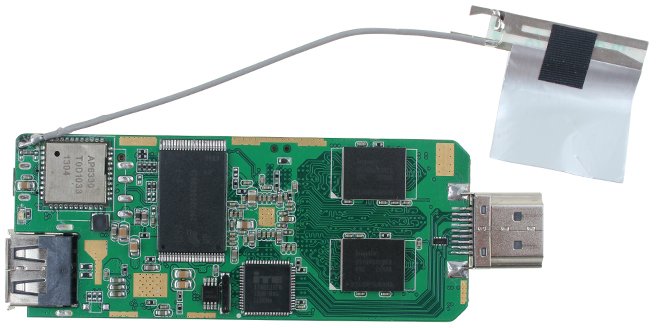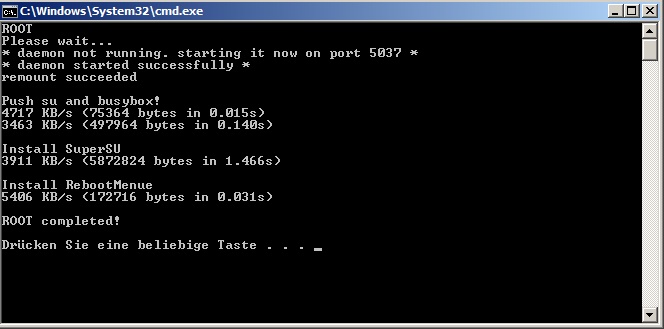Rk3188 Root Rar Download

PC: windows 7 64x got the yundao n80 rk3188 (quadcore) and i 've tried so far the unlockroot 3.36 which can't find the device and the files from the 1st post. It just won't install the drivers, can't find them. I am choosing the 64 folder --> win7 but nothing.
(also got the WinUSBCoInstaller.dll WdfCoInstaller01007.dll which i dropped inside both win7 folders 64 + 32) Anyone can offer some advice or a noob proof way? The only thing i haven't tried is the ZhuoDaShi-2.2.9 cause i don't know what it's going on since it's on chinese!
Thanks edit: Seems the problem was that i was using the usb ports on the front of the pc, read a post somewhere that those won't work, tried the backpanel ones, moborobo saw it, unlockrootpro rooted it. Edited by Loke, 20 May 2013 - 09:31 AM. Just putting this one out there to see if anyone has any information on Rooting, Recovery, ROMs/Firmware? Where to get How tos ETC.
I have found the following but have not been able to get it to work (fails to load the drivers correctly - some dll missing). But I haven't tried hard and someone else might get it working. Okay, so just spent the last 3 hours trying to get this to work on my N80RK.finally figured it out using Windows 8!
After having installed the driver, download RK3188_ROOT.rar (password: GEEKBUYING.COM), and extract the files. ( Alternative link ) Click “ TPSparkyRoot.bat” and follow the instructions.
First of all, the driver thing is a real pain in the @ss! The drivers that come with RKBatchTool_v1.6 are perfect for use with reimaging with the RKBatchtool, but will not work to perform root with TPSparkyroot!
Dirty dancer mp4 video song free download. Nowhere could I find this explained, other than a small nod (in a post I cannot even find now, after so much searching) to using 'Moborobo' for installing drivers that work with TPSparkyroot. Also, another big problem is that the drivers that Moborobo installs are unsigned, which Windows 8 doesn't allow without some intervention.

So, if all you want is to root your N80RK (maybe even after reimaging to the stock firmware dated 20130420 from here: ), this is what you have to do: 1) Download RK3188_ROOT.rar (follow link above) 2) Download Moborobo for Windows here: 3) Follow instructions here for installing unsigned drivers: 4) PC will reboot into mode allowing installation of unsigned drivers 4) Install Moborobo 5) With Moborobo running, connect N80RK powered on normally, with USB debugging turned on, using USB cable connected to any USB port on your PC, and click 'Refresh' in Moborobo to begin driver installation. Click 'install drivers anyway' each time dialogue pops up 6) Once Moborobo shows N80RK connected via USB successfully, exit Moborobo app by clicking on 'X' in upper right corner of app, and selecting 'Exit Program' (if you don't do this, you will get an adb error in next step) 7) Go to your RK 3188_Root folder (created after extracting RK3188_ROOT.rar file previously downloaded here: ), and double-click TPSparkyRoot (Windows Batch File) 8 ) TPSparkyRoot should launch in Cmd.exe, show device connected and adb.exe started on port 5037. If all previously steps done correctly, you be prompted to hit any key after each successful reboot of the N80RK which happens automatically whilst the TPSparkyRoot tool is running. 9) SuperSU is supposed to install during TPSparkyRoot process,but it didn't for me.you might see an error message, but continue anyway until you see root successful message at the very end. If done successfully, you will see RootExplorer installed on your N80RK. Then, all you need to do is install SuperSU from the RK3188_Root folder using Moborobo's install feature (while connected via USB to your N80RK), or if you prefer, download and install SuperSU from the Google Play Store.
That's it.you are now rooted with the latest Yuandao stock image! I hope this post saves someone else a whole lot of time a grief, and hope you will now love your N80RK as much as I love mine! Edited by sdt1, 26 May 2013 - 03:30 PM. Okay, so just spent the last 3 hours trying to get this to work on my N80RK.finally figured it out using Windows 8! First of all, the driver thing is a real pain in the @ss!
The drivers that come with RKBatchTool_v1.6 are perfect for use with reimaging with the RKBatchtool, but will not work to perform root with TPSparkyroot! Nowhere could I find this explained, other than a small nod (in a post I cannot even find now, after so much searching) to using 'Moborobo' for installing drivers that work with TPSparkyroot. Also, another big problem is that the drivers that Moborobo installs are unsigned, which Windows 8 doesn't allow without some intervention. So, if all you want is to root your N80RK (maybe even after reimaging to the stock firmware dated 20130420 from here: ), this is what you have to do: 1) Download RK3188_ROOT.rar (follow link above) 2) Download Moborobo for Windows here: 3) Follow instructions here for installing unsigned drivers: 4) PC will reboot into mode allowing installation of unsigned drivers 4) Install Moborobo 5) With Moborobo running, connect N80RK powered on normally, with USB debugging turned on, using USB cable connected to any USB port on your PC, and click 'Refresh' in Moborobo to begin driver installation. Click 'install drivers anyway' each time dialogue pops up 6) Once Moborobo shows N80RK connected via USB successfully, exit Moborobo app by clicking on 'X' in upper right corner of app, and selecting 'Exit Program' (if you don't do this, you will get an adb error in next step) 7) Go to your RK 3188_Root folder (created after extracting RK3188_ROOT.rar file previously downloaded here: ), and double-click TPSparkyRoot (Windows Batch File) 8 ) TPSparkyRoot should launch in Cmd.exe, show device connected and adb.exe started on port 5037. If all previously steps done correctly, you be prompted to hit any key after each successful reboot of the N80RK which happens automatically whilst the TPSparkyRoot tool is running. 9) SuperSU is supposed to install during TPSparkyRoot process,but it didn't for me.you might see an error message, but continue anyway until you see root successful message at the very end.